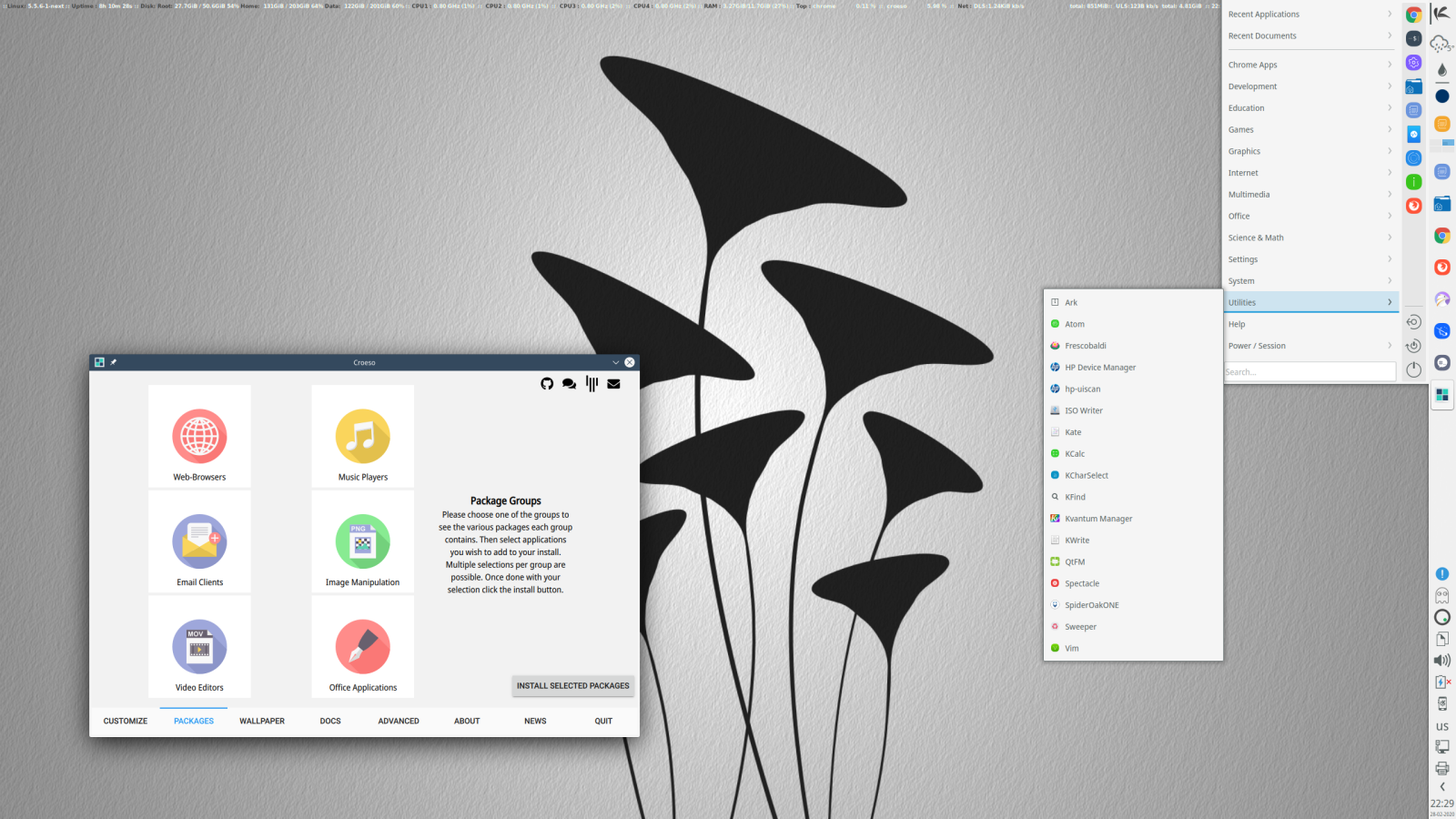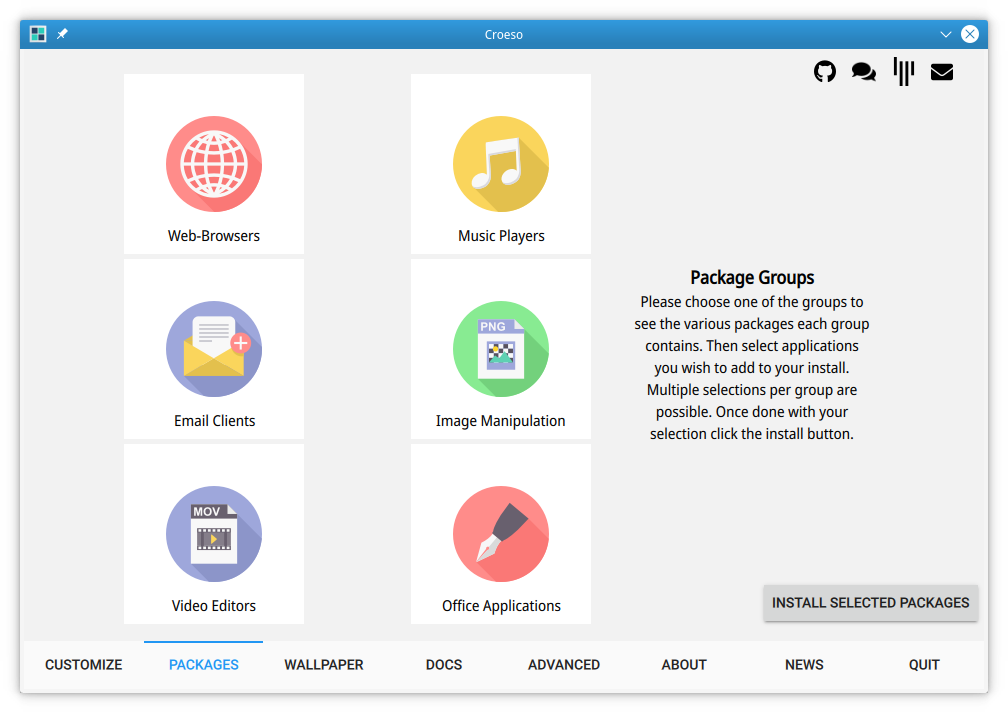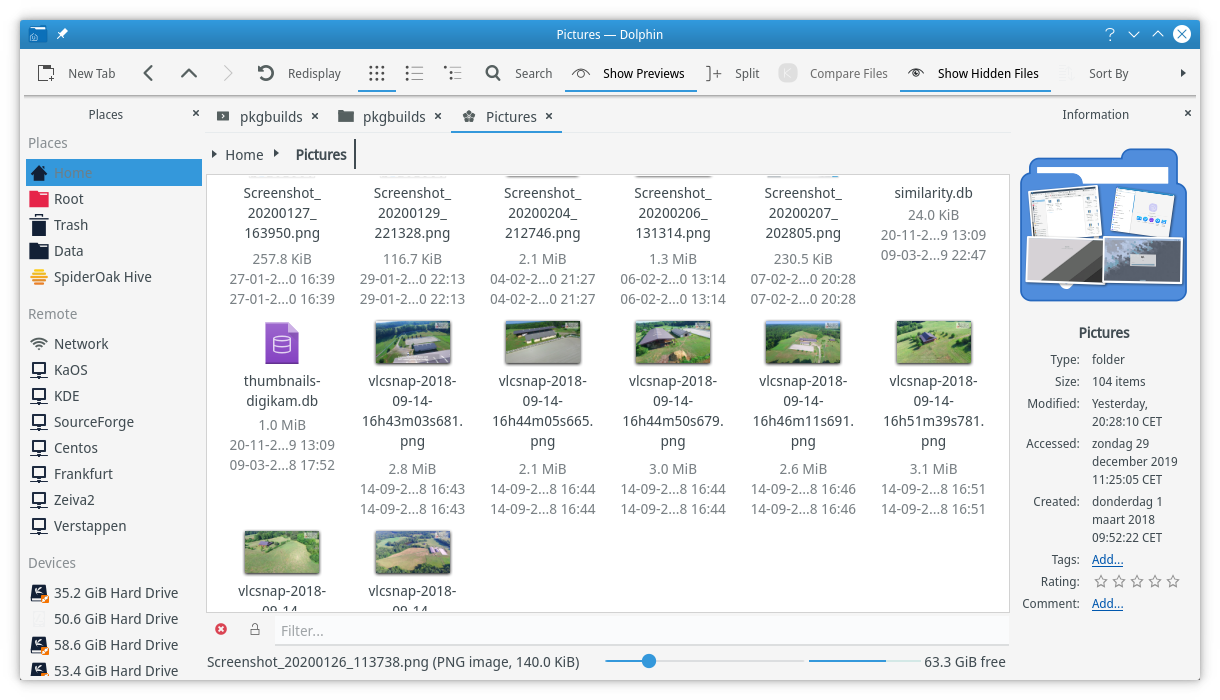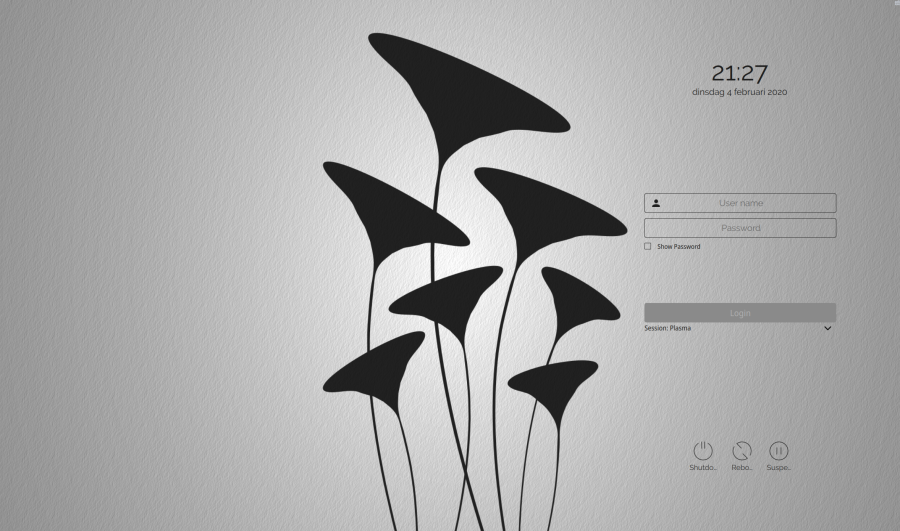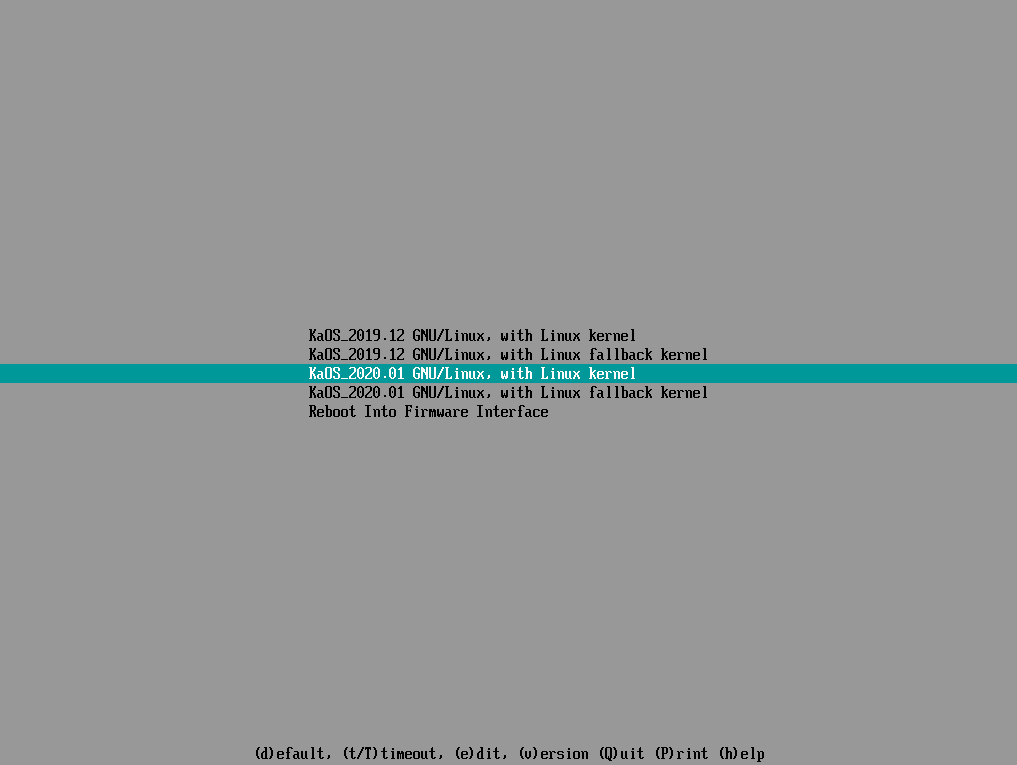KaOS 2020.02
Feb 28, 2020
KaOS is very proud to announce the availability of the February release of a new stable ISO.
Not since 2014 has there been a KaOS ISO with this many new features.
It starts with the installer, there it is now possible to select whether or not to install an OfficeSuite (current choice is limited to LibreOffice, future might see the additon of Calligra as option).
You can also opt to do a minimal install.
This means opting for a fully functional Plasma Desktop with a filemanager, texteditor and simple web-browser, but no further applications. So there won’t be a music player, image viewer, office suite and so on. You as a user can decide once the system is installed what to add when the minimal install was chosen.
That brings us to the next new feature. To help with selecting what to add to your new install, the first run wizard Croeso has the option added to install packages from six commonly used groups. For example, one group will give a choice of four different web-browsers to add, so it is now very simple to add Chrome or Firefox. Since KaOS has never installed an email client by default, there naturally is now a group for that too.
The above new feature makes it no longer needed to ship as many applications by default on the ISO, thus the number of installed packages has been reduced from roughly 980 to a little over 900.
A smaller change is done for the Welcome application as seen in Live mode. The installed package list is now part of the main window with it’s own tab in the slideview. No longer is there a need to open a new window for this list.
The Midna theme used for KaOS has been redone for 2020, biggest change there is the move from QtCurve to Kvantum for the application style. Implemented is a custom Midna Kvantum theme, following the same style as used in Croeso and the Welcome application.
Ksplash is simplified with less moving images, SDDM theme has better contrast. Complete new is theming for the systemd-bootloader, gone is the standard black background with white text, instead you will see a well intgrated option with the rest of the Midna theme. The grub bootloader was updated to follow a similar look as the systemd-bootloader.
For the installer Calamares, a second new feature was added. The Release Notes are now shown in a QML module, so there no longer is a need to work around sandboxing issues with QtWebengine or having to use the depreciated QtWebkit.
You will find Plasma 5.18 on this ISO already. Highlights of Plasma 5.18 include the new Global Edit mode that you can activate by right-clicking on an empty area of your desktop and choosing ‘Customize layout’ from the popup menu, there’s a new system tray widget that lets you toggle the Night Color feature, many changes in the notifications system, and a new User Feedback option in System Settings where the Feedback settings slider lets you decide how much you want to share with KDE developers. Frameworks is at 5.67.0, Plasma at 5.18.1 and KDE Applications at 19.12.2. All built on Qt 5.14.1.
Last new feature you will see on this ISO is the change of package compression standard from tar.xz to tar.zst. ZSTD brings a significant improvement of decompression speed over XZ, while bringing only a marginal larger package size.
Most notable major updates to the base of the system are Systemd 244, Make 4.3, Sudo 1.8.31, Linux 5.5.6, GMP 6.2.0, Mesa 19.3.4, NetworkManager 1.22.8, Nano 4.8, NSS 3.50 and Qt 5.14.1
Common Notes
The Linux kernel has all the needed ucode build-in for a fully automated Early Microcode update.
KaOS uses the Systemd provided Systemd-boot for UEFI installs.
KaOS repositories no longer provide Qt 4. It is a good four years ago that development for Qt 4 stopped, late 2015 all support including security fixes ended. Any application that has not made the transition to Qt 5 in all this time can no longer be supported in KaOS. Either they actually are no longer maintained or their development is ignoring the implications of building on a possible insecure toolkit.
Included is a KaOS specific tool to write ISO files to USB. Not only does IsoWriter write to USB it also gives the option to recover your USB stick after using it for an ISO, something that regular dd copy or the previously used Imagewriter were not able to do. New in this version is the ability to verify the integrity of the written USB flash drive in comparison to the downloaded ISO file. This can be done in Dolphin too, right-click the ISO file, select Actions then select Verify ISO Write
Since LibreOffice 6.2, it is now possible to supply this as a pure Qt5/kf5 application. LibreOffice has thus replaced Calligra as the default Office Application for KaOS.
KaOS’ creation Croeso (Welsh for welcome) for helping with configuring a new install is included. It will run on the newly installed system and offers to adjust some 15 commonly used settings, includes a custom Wallpaper selector, distribution info and the option to select packages to install from six different groups. It is written in QML and fits well with the Welcome application used in the Live system. The latter includes an Installation Guide.
This ISO uses the CRC and finobt enabled XFS filesystem as default. CRCs enable enhanced error detection due to hardware issues, whilst the format changes also improves crash recovery algorithms and the ability of various tools to validate and repair metadata corruptions when they are found. The free inode btree does not index used inodes, allowing faster, more consistent inode allocation performance as filesystems age.
The artwork includes custom icon themes for light and dark themes. Midna and Midna Dark both create a complete unified look from boot-up all the way through logout.
There is an option to verify the authenticity of downloaded KaOS ISO files through GPG signature verification, see the Download page for further details and instructions.
Known issues:
- Some Intel CPU systems might have an issue kernel’s entropy pool and have a long boot delay if encountered add random.trust_cpu=1 to the kernel boot line.
- Installing on RAID is currently not possible
To create reliable installation media, please follow the instructions from the Download page. KaOS ISO’s do not support Unetbootin or Rufus, and DVDs need a burn speed no higher than 4x.

